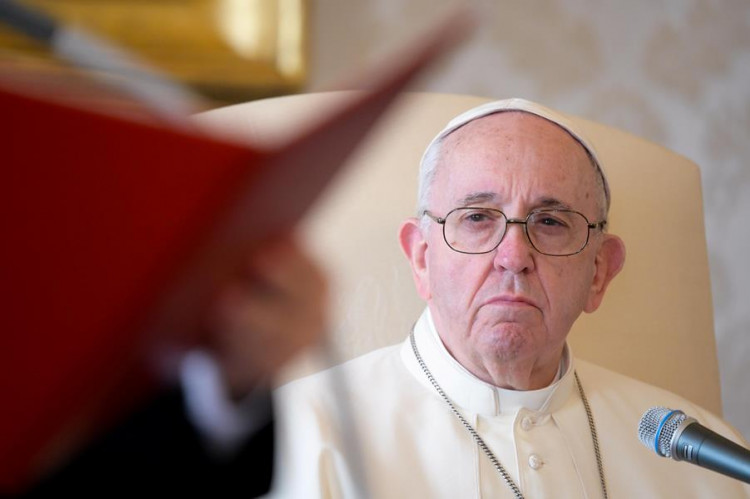The Vatican has declared gender-affirming surgery and surrogacy as grave violations of human dignity, placing them on the same level as abortion and euthanasia in a new doctrinal declaration titled "Infinite Dignity." The 20-page document, which has been in the works for five years and was approved by Pope Francis on March 25, reiterates the Catholic Church's rejection of "gender theory" and the idea that one's gender can be changed.
"It follows that any sex-change intervention, as a rule, risks threatening the unique dignity the person has received from the moment of conception," the document states, distinguishing between gender-affirming surgeries and "genital abnormalities" present at birth or that develop later, which can be "resolved" with the help of health care professionals.
The declaration has drawn immediate criticism from advocates for LGBTQ+ Catholics, who warn that it could have real-world effects on transgender people, fueling anti-trans violence and discrimination. "While it lays out a wonderful rationale for why each human being, regardless of condition in life, must be respected, honored, and loved, it does not apply this principle to gender-diverse people," said Francis DeBernardo of New Ways Ministry.
The document also takes aim at countries that criminalize homosexuality, echoing Pope Francis' assertion in a 2023 interview with The Associated Press that "being homosexual is not a crime." It denounces "as contrary to human dignity the fact that, in some places, not a few people are imprisoned, tortured, and even deprived of the good of life solely because of their sexual orientation."
In a newly articulated position, the Vatican declares that surrogacy violates both the dignity of the surrogate mother and the child. "Considering this, the legitimate desire to have a child cannot be transformed into a 'right to a child' that fails to respect the dignity of that child as the recipient of the gift of life," the document states.
The Vatican had previously published its most articulated position on gender in 2019, when the Congregation for Catholic Education rejected the idea that people can choose or change their genders and insisted on the complementarity of biologically male and female sex organs to create new life. The new document from the more authoritative Dicastery for the Doctrine of the Faith quotes from that 2019 education document but tempers the tone, notably omitting the 1986 language that described homosexual actions as "intrinsically disordered."
In a news conference introducing the document, Cardinal Víctor Manuel Fernández, the new prefect of the Dicastery for the Doctrine of the Faith and a close confidant of Pope Francis, acknowledged that the "intrinsically disordered" language was very strong and that there might be a better way, "with other words," to express the church's vision of sex as being a perfect union between husband and wife to create new life.
The Rev. James Martin, who has called for the Catholic Church to extend greater outreach to LGBTQ+ Catholics, welcomed the condemnation of legislation and violence against LGBTQ+ people, stating, "That cannot be repeated too often as an offense against human dignity. The LGBTQ person, like everyone else, has infinite dignity."
However, transgender activists immediately called the document "hurtful" and devoid of the voices and experiences of real transgender people, especially in its distinction between transgender people and intersex people. Mara Klein, a nonbinary, transgender activist who has participated in Germany's church reform project, criticized the suggestion that gender-affirming health care might risk or diminish transgender people's dignity as "not only hurtful but dangerously ignorant."
The document comes at a time of some backlash against transgender people, including in the United States, where Republican-led state legislatures are considering a new round of bills restricting medical care for transgender youths and governing their pronouns, sports teams, and bathrooms at school.
"On top of the rising hostility towards our communities, we are faced with a church that does not listen and refuses to see the beauty of creation that can be found in our biographies," Klein said in an email, as reported by AP.
"Infinite Dignity" addresses over a dozen individual issues of the modern day through the lens of scripture and church teaching, including abortion, human trafficking, poverty, euthanasia, and the death penalty. While not intended to be a complete and exhaustive guide to modern moral controversies, the document offers insight into the Catholic Church's perspective on key ethical issues it believes require more intense consideration from society.




